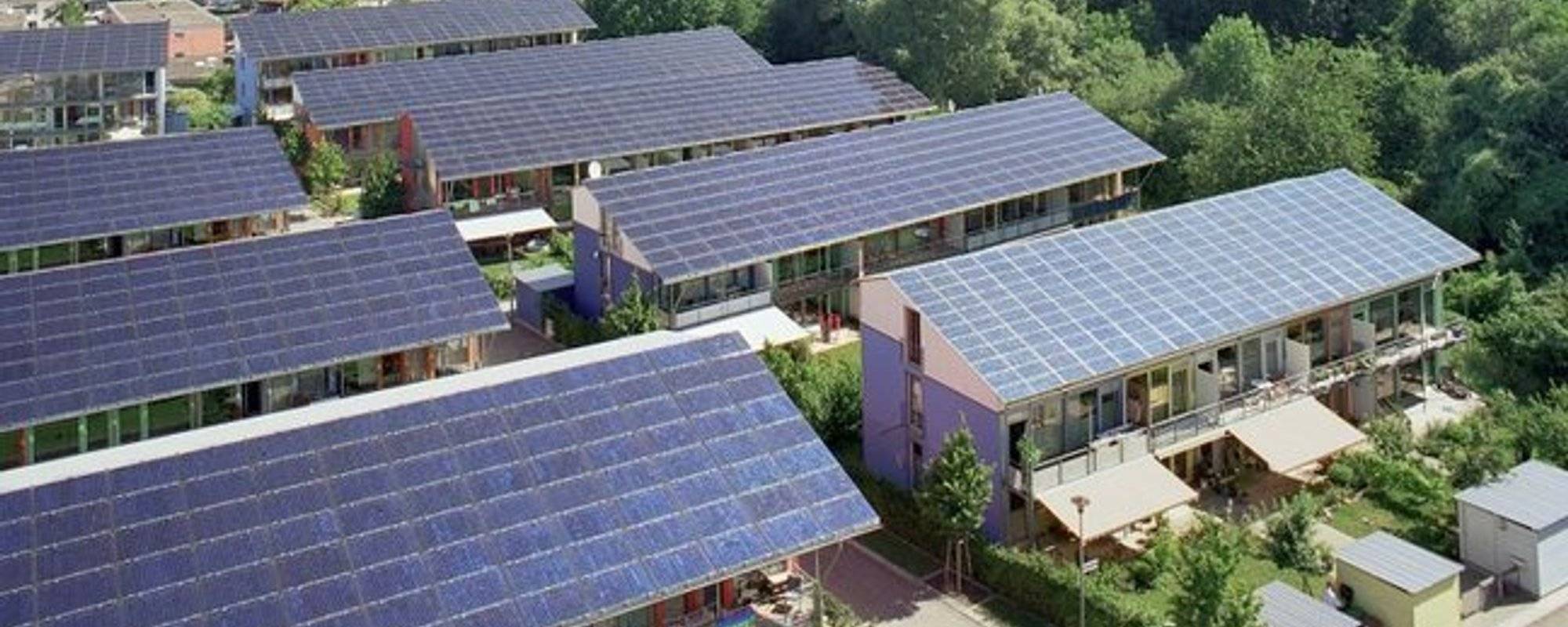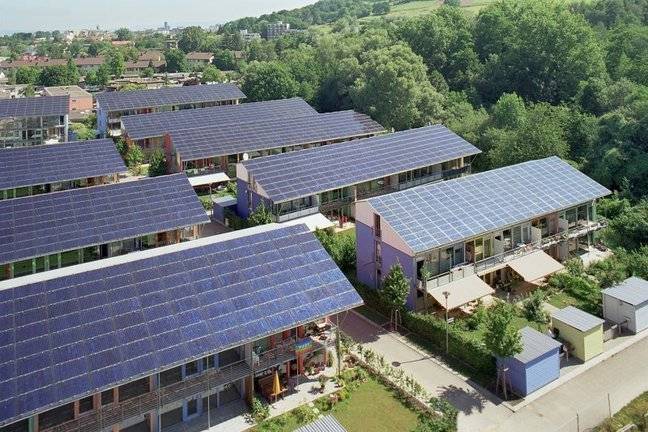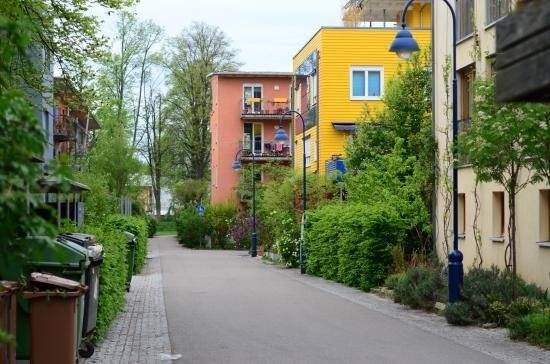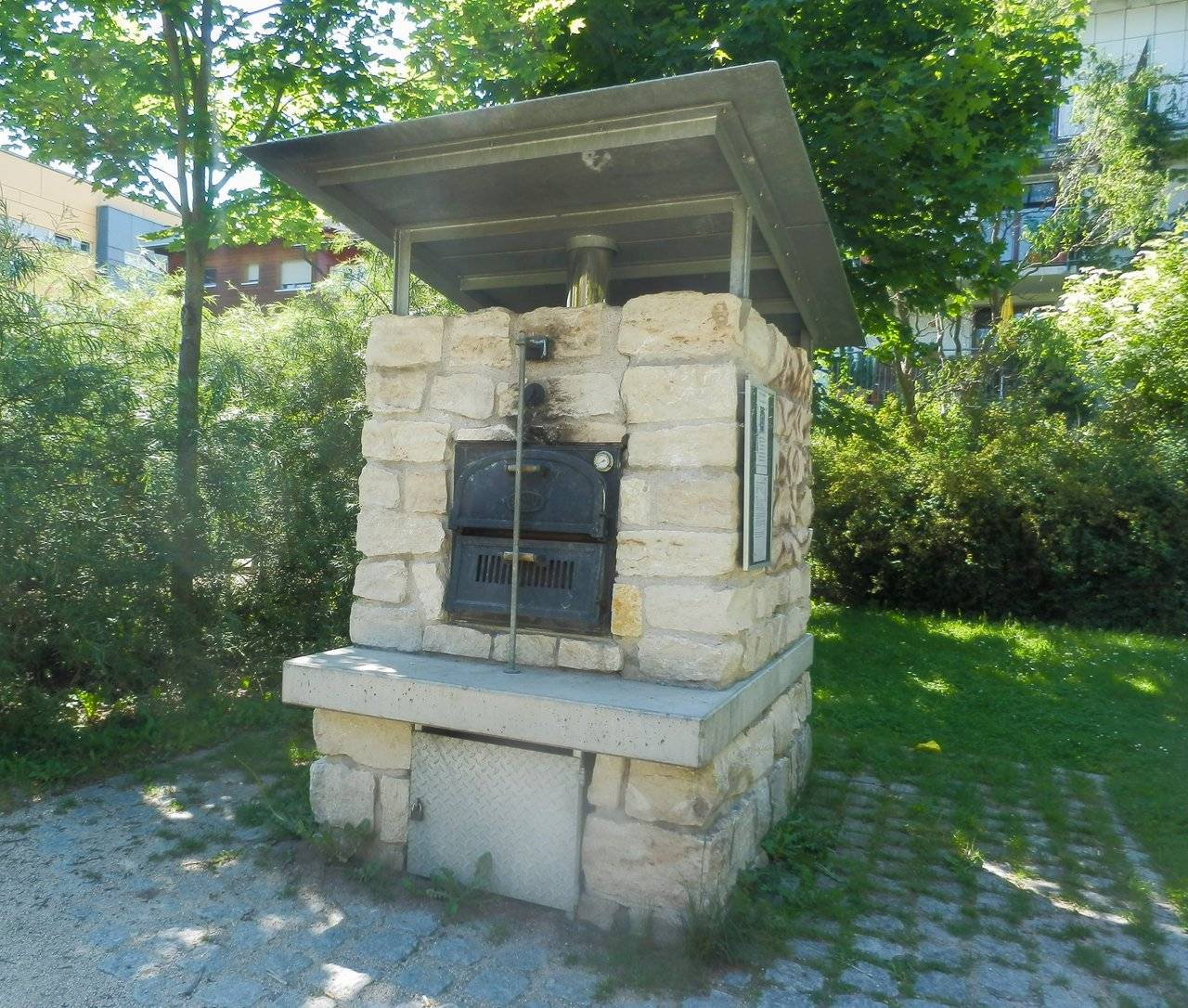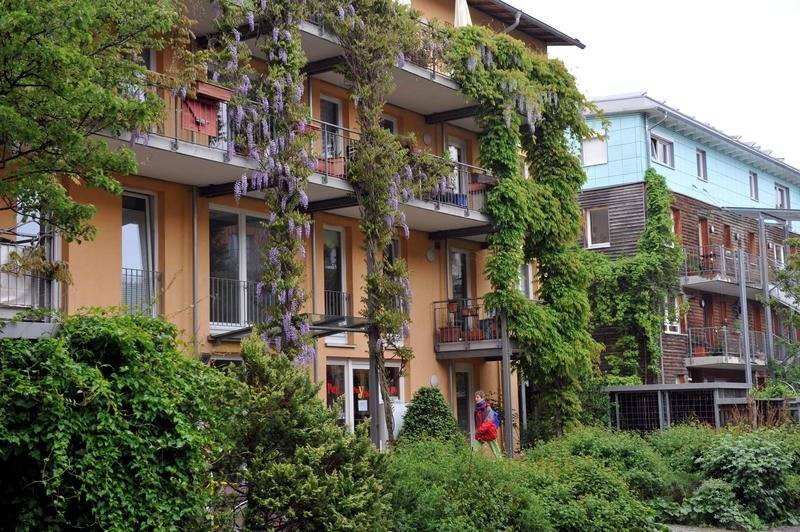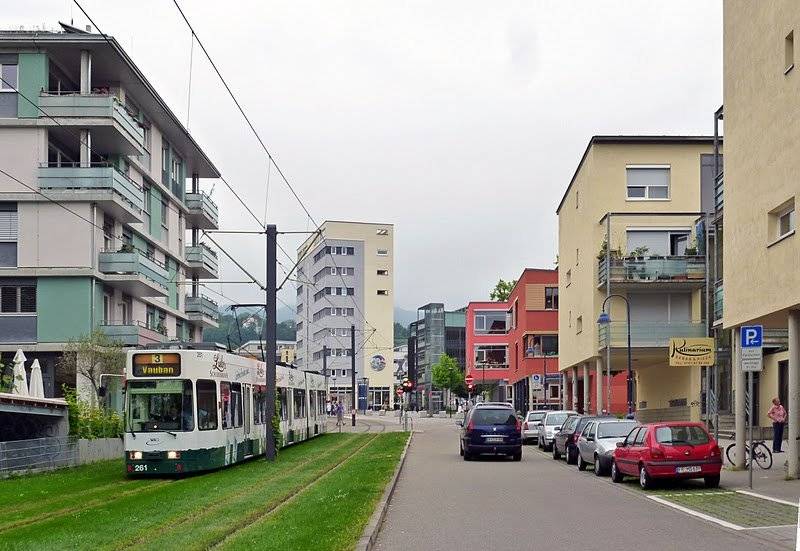I’m sitting on the terrace out the front of my apartment on a Sunday morning. A group of tourists stop in front of me taking photos of my street, my house, the neighbours and me.
I live in Vauban, a suburb of Freiburg in south-eastern Germany. Freiburg is known as the “Green City” due to its political leanings and for developing the suburb Vauban into the worlds first sustainable suburb.
Directly south overlooking Vauban are sloping hills with private vineyards and cornfields on the edge of the Black Forest. The green theme is everywhere with grass growing between the tram tracks, on roofs, plants growing up walls. The Green City Hotel Vauban staffed by people with mental or physical disabilities.
Quartier Vauban was once a French military base named after Marshal Vauban, famous for designing fortified cities in the 17th Century ( my visit to Neuf Brisach). When the French left in 1991, squatters moved into the vacant military barracks. In 1998 after much discussion, the squatters won the right to use four of the twenty barracks.
Ten of the barracks are now used for much-needed low-cost student accommodation as the rental prices in the university town of Freiburg are some of the highest in Germany.
The tour guide moves on towards the two large multi-storied car parks on the fringe of Vauban. Many residents join the car club where they share the costs of running a car according to use. This works out much cheaper than paying the €18,000 a year for a car space in these garages.
Cars are limited to essential access streets including the main street Vaubanallee where the speed limit is 30kmph. Children can safely play everywhere in Vauban in the “Traffic Calmed Area”. Of the 5,500 residents with an average age is 28, Vauban is popular with families.
The tour guide will walk the tourists down to the community garden “Wandel Garten” where children are encouraged to be involved with worm farming, composting and growing vegetables.
There are “green areas” including five playgrounds each themed according to age group and activities based more on nature, not toys. The one I like has a free wood-fired stone oven in the centre of it.
One of the old barracks has been turned into a community centre “Stadteilentrum Haus 037” where recreational courses are run and regular social events. On Wednesday afternoons a small farmers market pops up on the square outside. Local Freiburg vendors park their vans and sell fruit, vegetables, dairy and meat along with flowers and handicrafts.
There are thirty “Passive” apartment blocks were the roofs are green covered in grass to help reduce heat loss. These houses cost 10% more to build but reduce energy loss by 50%. With lower energy consumption to keep a comfortable temperature there is no need to use air conditioning or water heating. It is medium density living where your neighbours are always close. I find we have problems with water pressure and it still does get cold enough in winter to invest in a heater.
Electricity comes from the local solar network grid and heating is provided by natural gas and woodchips. The tour will take visitors to the CHP power plant where they can see the heat pumps in action and heating storage system after they visit the car garages.
The highlight for the tourists on tour will be the Heliotrope. A circular building housing rotating solar panels that adjust to sun position to capture maximum sunlight. And the world-first “PlusEnergy” houses in the solar settlement and the “Sunship”. Excess energy is put back into the city grid and house owners receive a cash profit guaranteed by the German government for 20 years.
Two major supermarkets are at the entrance of Vauban so it is not self-sustainable. There is not enough food produced within to feed everyone.The woodchips and natural gas for heating are not produced in Vauban.
There is also a doner kebab shop, a used clothing stor, a bio jeans store which confuses me. Why is it bio? The store marketing proudly states they are made of bio wool, not cotton so no child labour and fair wages involved in making the denim. The wool comes from Poland so cheaper on transport costs. They are ridiculously expensive jeans. But majority of the Vauban residents are convinced they are living eco-friendly and there is much browsing in this shop.
Although a good idea to be energy sufficent Vauban has it's flaws to live in. If you are interested in seeing an eco-friendly neighbourhood it is worth taking the time to visit.
All photos taken by myself.
I lived in Vauban in 2011. My last home in Freiburg, Germany.
